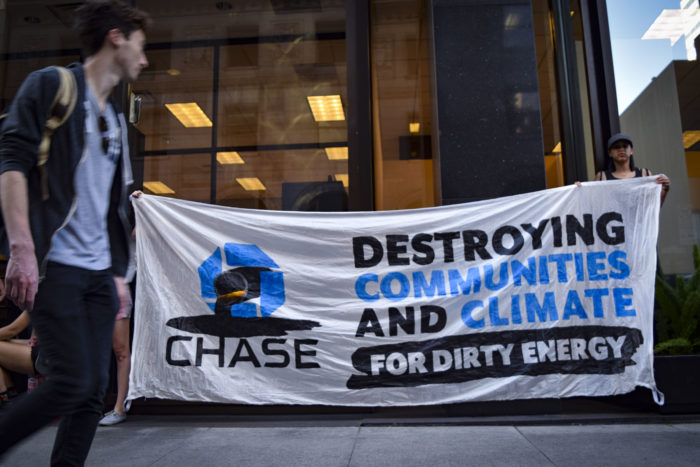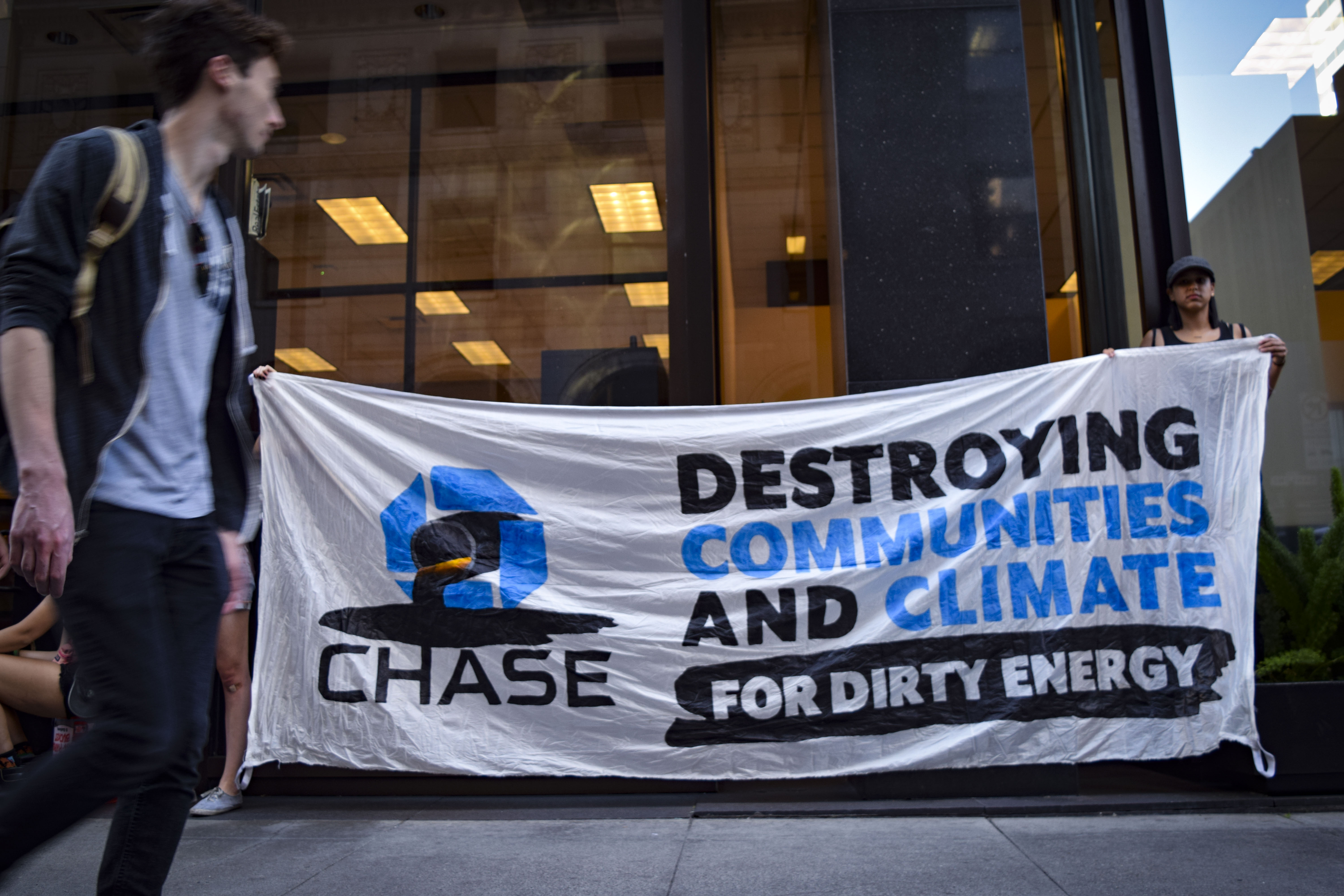Big banks, big problems
If you’re reading this, it’s probably because you recognize that big banks, through their financing and investments, are huge drivers of climate change. In fact, 33 of the world’s biggest banks poured $1.9 trillion into fossil fuels in the three years since the Paris Agreement was adopted. Many also finance deforestation and peatland destruction, also major drivers of climate change and human rights impacts.
Big banks also harm our communities by financing private prisons and guns, engaging in predatory and discriminatory lending practices, and more.

So you want to move your money
The choice of where to bank is a personal one. It’s also a local one. Chances are, most big banks are involved in some kind of activity that doesn’t align with your values, so the best option can often be a local not-for-profit credit union that has transparency around how it uses your money.
Finding an alternative and making the switch can be an investment in your values and pocketbook (it can bring lower fees and higher returns!). Our friends at the DefundDAPL coalition put together a great list of alternatives, and highlight this step-by-step guide from the Consumer Financial Protection Bureau on how to make the move. DivestInvest also has a list of tools and resources for moving your money. NerdWallet lists here the banks that have been certified as B-Corps or which are members of the Global Alliance for Banking on Values.
If you’re looking at a credit union or local bank recommended by one of these lists, chances are that it is light-years ahead of your big corporate bank. But if you want to make sure that your bank doesn’t support the fossil fuel industry or other carbon-intensive sectors, try asking these questions of your bank representative (or, use these as a guide to asking about other industries):
- Does this institution invest in, lend to, or provide underwriting or other financial services for companies and projects in the fossil fuel industry or industries driving deforestation?
- Who owns this institution? (Make sure it’s not owned by one of the big banks that you know is financing fossil fuels!)
- Where can I read more about the institution’s policies regarding what it will and won’t finance?
Before you go
If you do move your money — please be sure to tell your bank why you did! Your efforts will be most effective if the bank knows that it’s losing customers over these issues. Here is a sample letter you can download and edit for your particular situation.
Push for public banks
If you still wish there were a better option, you can join the movement pushing for publicly-owned banks in cities and states around the U.S — this resource lists local groups pushing for public banks by state and country. For examples of what this looks like, check out the coalitions of groups advocating for public banks in New York City and San Francisco (the San Francisco website also has a useful context in the “Resources” section).
Leaving JPMorgan Chase?
If your organization, business, school, etc. moves its money away from JPMorgan Chase in particular, please do let us know! Get in touch by emailing organizing@ran.org.
